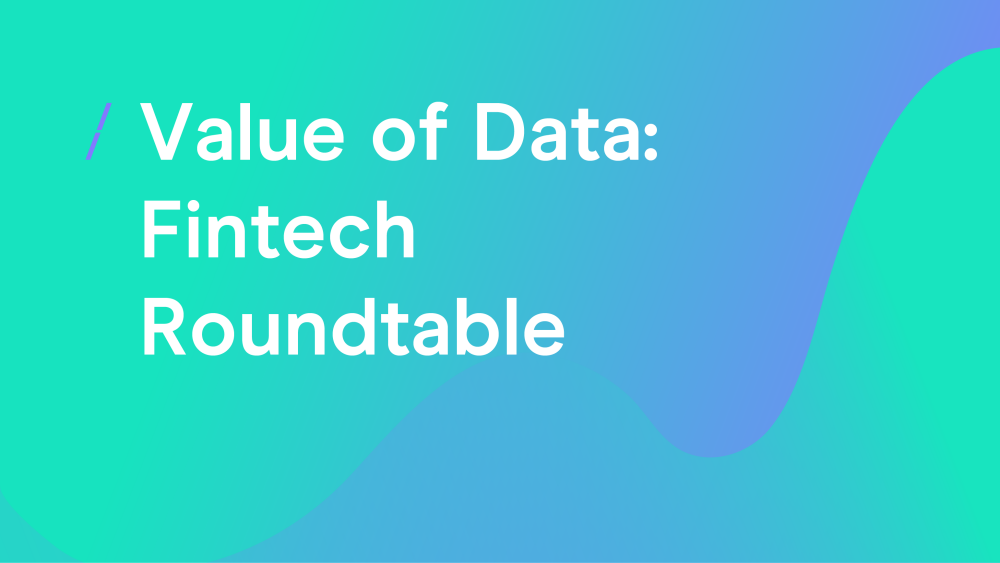Value of Data: Fintech Roundtable
24 Jul 2019

As part of the exploratory phase of the campaign, the DMA is holding a series of roundtables with different industry sectors to explore the role of data and the challenges and opportunities it brings. The discussions will tie into the themes raised in the Value of Data white Paper and seek to understand what tools, insight and ethical frameworks are required to fuel innovation in the data economy.
Recently, we have been looking to understand what really constitutes disruption with regards to data in the financial services industry? How has data-driven tech shaped the value exchange in financial services? With data as the primary ‘currency’ who’s in control of driving that value and where do the ethical risks lie.
So, on a rare warm morning in Edinburgh, key figures from Scotland’s fintech industry gathered in the offices of MERKLE to hear about and discuss the issues around data in the fintech sphere.
The morning began with an introduction by marketing director of FinTech Scotland, Mickael Paris, who expertly tied together the issues in financial services and how they differ to those of traditional banks.
One of the main aspects of discussion was the issue of general—and more specifically, customer—understanding of the issues and possibilities of data in the financial sphere. Traditional banking maintains a large customer base because they understand how the system works.
While innovative fintech companies may provide better products, it involves the customer taking time to understand and use a new system for management of their income.
This began a discussion on the theme of trust - a key issue with banking in particular. For example, people need to be convinced that their money is stored and accessed with adequate safeguards, and that the decisions made by banks about your money are made fairly and with relevant information.
The group explored how data and fintech companies can help build this trust. There is huge potential to use data to build better, fairer and more transparent credit rating scores and more detailed (and relevant) customer profiles. When this information is shared and is clear to both the customer and the bank, they can communicate and understand financial situations better. The bank can better recommend products or offer financial help on a basis when they can be sure the customer won’t incur financial harm.
Indeed, the advantages of data mean that companies can better contextualise an individual’s position and predict their likely financial position over time. When this information is used effectively for and with the customers, they become better informed and more able make changes to improve their financial situation in the long-run, too.
With this level of tailoring, the offering to customers becomes not a selection of products to help them, but tailored solutions for each individual.
This notion can be repeated elsewhere – fintech companies providing technical functions can also learn more about the banks and customers and create algorithms and AI systems that can serve needs more efficiently.
The group also touched upon the principle of accountability. Banks and fintech companies ought to be held accountable by customers. For example, a public rating giving information on the clarity of communications, use of data and trustworthiness could help customers choose products and services better for them. This can also help financial service providers understand what customers need in order to trust them.
In this way, the ‘value’ of the data in these circumstances becomes the ability for the business to provide the customer with the service they want, rather than the commercial value that can be gained from a customer from the use of data to establish monetising financial services.
The breadth and variety of fintech companies and services means that the role of data and its value are far-reaching. Nonetheless, all agreed that the principles of better customer relationships, growing trust and accountability were all necessary for the development and adoption of fintech products and services by the public.
All in all, data is playing a fundamental role in challenging existing models and changing cultures in all aspects of banking. What is clear, is collaboration across traditional FS and fintech will be imperative for delivering the best products and services in the financial industry.
There is much more to be discussed in regards to fintech and the value of data. Stay tuned for more output from the Value of Data campaign on this subject and many more.
Attendees
Mickael Paris, Marketing Director, FinTech Scotland
Anneli Ritari-Stewart, Managing Director, iProspect
Steve Farquhar, Commercial Director, Merkle
Derek Lennox, Head of Data Governance, Sainsbury’s Bank
Andrew McKee, CIO, Ultimate Finance
Robbie Hunter, Head of Business Insight & Analytics, Standard Life
Howard Barber, Head of Marketing Capabilities & Platforms, Tesco Bank
Adrian James, CEO, Monily.co
Darren Cairns, CMO, Lending Crowd
Rachel Aldighieri, Managing Director, DMA

Please login to comment.
Comments